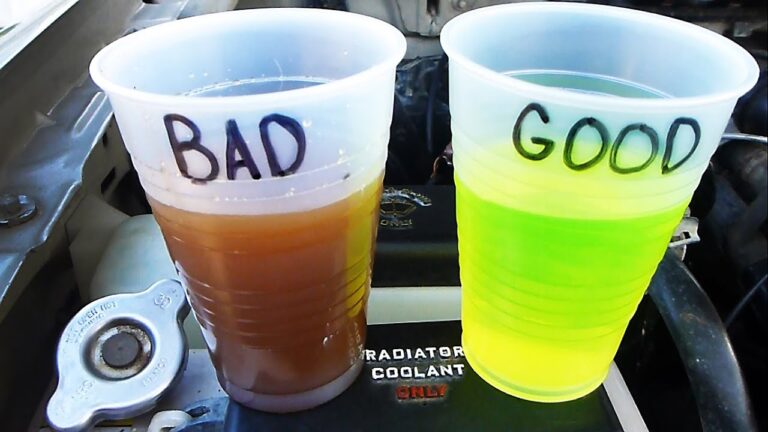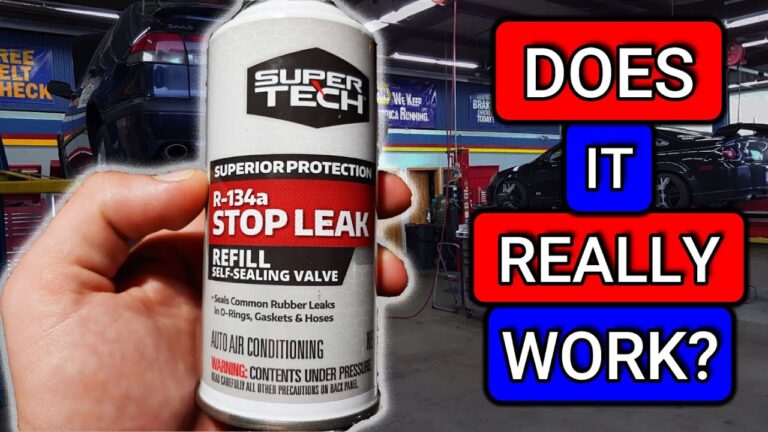Can You Clean Coil Packs?

Coil packs, or ignition coils, are crucial components of your vehicle’s ignition system. They convert the battery’s low voltage into the high voltage needed to spark the spark plugs and ignite the air-fuel mixture in the engine. Over time, dirt, oil, or other contaminants may build up on the ignition coils, leading some car owners to wonder: Can you clean coil packs?
While it might seem like a quick fix to clean the coils, there are some important considerations before attempting it. In this article, we’ll explore whether cleaning your coil packs is a good idea, how you should handle them, and the best way to maintain your ignition system.
What Are Coil Packs and How Do They Work?
Coil packs, or ignition coils, are responsible for generating the spark that ignites the fuel mixture in your engine’s cylinders. These components consist of an electrical coil wrapped around a core, and they play a vital role in ensuring your engine runs smoothly. Modern vehicles use coil packs to individually power each cylinder, as opposed to older vehicles that used a single ignition coil.
The coil pack receives low voltage from the battery and steps it up to the high voltage required to create a spark at the spark plug. Without a functioning coil pack, your engine will misfire, have trouble starting, or fail to start altogether.
Can You Clean Coil Packs?
Technically, you can clean a coil pack, but it’s not always necessary or advisable. Here’s why:
1. Coil Packs Are Durable Components
Coil packs are designed to withstand the rigors of engine operation. They are typically enclosed in a protective casing that shields them from contaminants like dirt, oil, or water. If you notice that your coil packs are covered in oil or grime, it could be a sign of an issue such as an oil leak or a faulty gasket. In this case, cleaning them temporarily might remove the grime, but it doesn’t address the underlying issue.
2. Potential for Damage
Coil packs are electrical components, and cleaning them improperly can cause damage. Applying water, solvents, or cleaning chemicals directly to the coil could lead to short circuits, corrosion, or other electrical problems. Coil packs also have delicate wiring, and rough handling could potentially damage them, affecting their ability to function properly.
3. Cleaning Methods Aren’t Always Effective
Cleaning a coil pack may not resolve the issue if the component is malfunctioning. If the coil pack is faulty, cleaning it won’t restore its functionality. Coil packs wear out over time, and the best solution is to replace a faulty coil pack instead of cleaning it.
When Should You Clean Coil Packs?
Cleaning coil packs might be considered in the following situations:
1. Excessive Oil or Dirt Buildup
If the coil pack has visible dirt, dust, or oil residue, you can carefully clean it with a mild cleaner, a lint-free cloth, or compressed air. However, ensure that no moisture or cleaner gets into the electrical components of the coil. If oil is leaking onto the coil packs, this could indicate a larger issue, such as a valve cover gasket leak, which should be addressed to prevent further damage.
2. Maintaining the Engine Bay
When performing general engine bay maintenance or cleaning, it’s fine to gently wipe off the surface of the coil packs to remove dirt or grime. However, avoid using harsh chemicals or abrasive materials that could damage the coils.
3. Cleaning Connectors
If the connectors of the coil packs are dirty or corroded, you can clean them with an electrical contact cleaner. This will ensure a good connection between the coil and the wiring harness. Just be careful not to get cleaner on the coils themselves.
How to Clean Coil Packs Safely
If you decide to clean your coil packs, here’s how to do it safely:
1. Turn Off the Engine and Disconnect the Battery
Before working on the ignition system, make sure the engine is off and the battery is disconnected to prevent accidental electrical shock.
2. Remove the Coil Pack
To clean the coil pack, it’s often best to remove it from the engine. This gives you more access to the component and allows for a more thorough cleaning. Be sure to note how the coil pack is connected, as you’ll need to reconnect it later.
3. Clean the Coil Pack
- Dry Cleaning: If the coil pack is just dusty, use a can of compressed air to blow away debris.
- Wiping Down: For light grime, use a clean, dry cloth to gently wipe the surface of the coil pack. Avoid using any harsh chemicals.
- Cleaning the Connectors: If the electrical connectors are dirty, use an electrical contact cleaner and a lint-free cloth or brush to clean them. This will help ensure proper electrical contact.
4. Check for Damage
While cleaning, carefully inspect the coil pack for any signs of cracks, burns, or other damage. If the coil is physically damaged, it’s time to replace it rather than clean it.
5. Reinstall the Coil Pack
Once the coil pack is clean, reinstall it into its original position. Reconnect the wiring harness and ensure everything is securely fastened.
6. Reconnect the Battery and Test the Engine
Once everything is reassembled, reconnect the battery and start the engine to ensure that the coil pack is functioning properly.
When to Replace Coil Packs Instead of Cleaning Them
While cleaning might help in some situations, a faulty coil pack generally needs to be replaced. Here are some signs that a coil pack is malfunctioning and should be replaced:
1. Engine Misfires
A misfire is often a clear indication of a problem with the ignition system. If your vehicle is misfiring and the issue is related to a coil pack, cleaning the component will not fix the underlying problem.
2. Check Engine Light (CEL)
If the check engine light turns on and you get a trouble code related to a coil pack (such as a P0301 for cylinder 1 misfire), it’s likely that the coil pack is faulty and needs to be replaced.
3. Rough Idle
A malfunctioning coil pack can cause your engine to idle roughly, as it may not be providing a consistent spark. If this happens, a replacement coil pack is usually required.
4. Poor Acceleration or Power Loss
If you notice a significant decrease in acceleration or overall engine performance, this could be due to a failing coil pack. Replacing the coil will restore performance.
Conclusion
While you can clean a coil pack, it’s generally not the best solution for resolving performance issues. Coil packs are vital components of your ignition system, and they should be treated with care. If your coil packs are visibly dirty, you can clean them gently, but if they are malfunctioning, it’s best to replace them rather than trying to clean them. Regular maintenance, including checking for wear and tear, will help ensure that your coil packs continue to perform optimally and keep your engine running smoothly.
Also Check:
• Can I Use WD-40 to Clean a PCV Valve?





